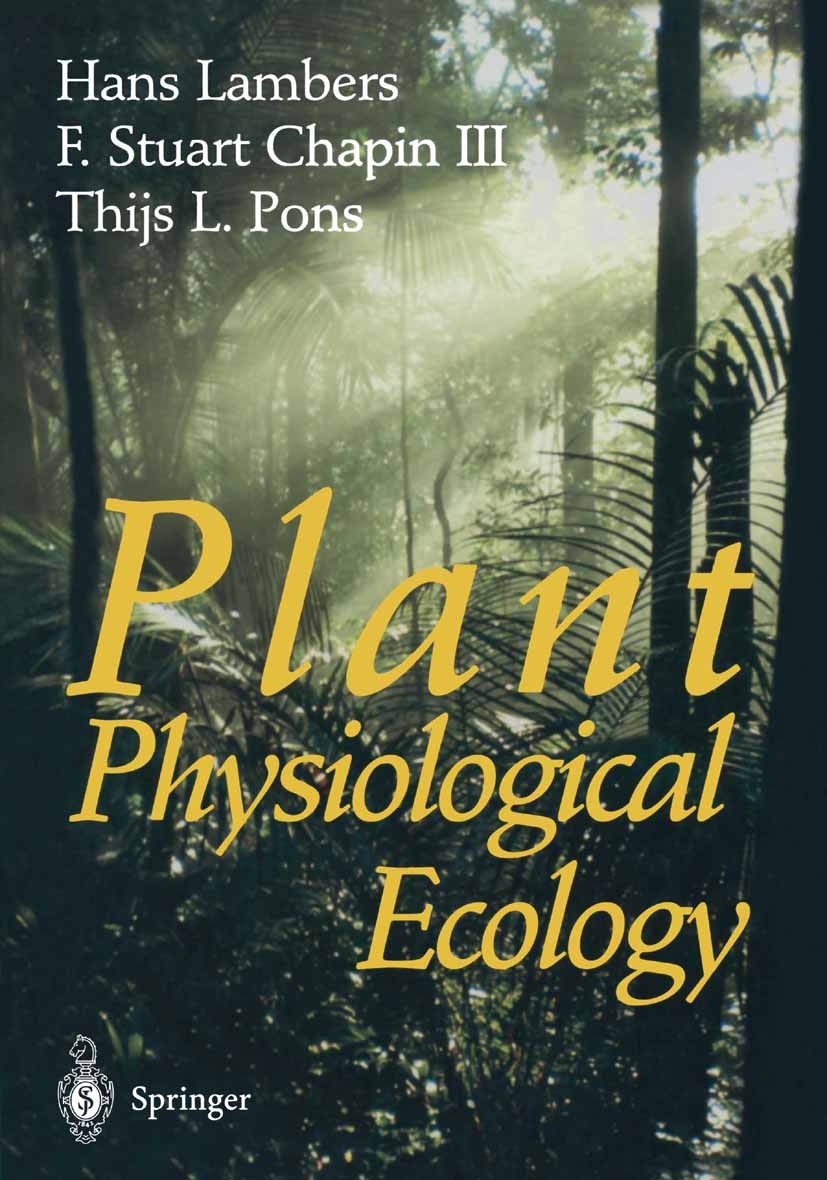| 书目名称 | Plant Physiological Ecology | | 编辑 | Hans Lambers,F. Stuart Chapin,Thijs L. Pons | | 视频video | http://file.papertrans.cn/749/748764/748764.mp4 | | 概述 | Significant new text suitable for plant ecology, plant physiology and plant molecular biology courses.Notable for its integration of molecular-, whole plant-, and ecosystem-level processes.Features bo | | 图书封面 |  | | 描述 | The individual is engaged in a struggle for existence (Darwin). That struggle may be of two kinds:The acquisition of the resources needed for establishment and growth from a sometimes hostile and meager environment and the struggle with competingneighbors of the same or different species. In some ways, we can define physiology and ecology in terms of these two kinds of struggles. Plant ecology, or plant sociology, is centered on the relationships and interactions of species within communities and the way in which populations of a species are adapted to a characteristic range of environments. Plant physiology is mostly concerned with the individual and its struggle with its environment. At the outset of this book, the authors give their definition of ecophysiology, arriving at the conclusion that it is a point of view about physiology. A point of view that is informed, perhaps, by knowledge of the real world outside the laboratory win dow. A world in which, shall we say, the light intensity is much greater than the 2s 1 200 to 500llmoi photons m- - used in too many environment chambers, and one in which a constant 20°C day and night is a great rarity. The standard conditions used i | | 出版日期 | Textbook 19981st edition | | 关键词 | Plant nutrition; Plant physiology; decomposition; ecology; ecosystem; energy balance; environment; metaboli | | 版次 | 1 | | doi | https://doi.org/10.1007/978-1-4757-2855-2 | | isbn_ebook | 978-1-4757-2855-2 | | copyright | Springer Science+Business Media New York 1998 |
The information of publication is updating

|
|
 |Archiver|手机版|小黑屋|
派博传思国际
( 京公网安备110108008328)
GMT+8, 2026-2-8 21:58
|Archiver|手机版|小黑屋|
派博传思国际
( 京公网安备110108008328)
GMT+8, 2026-2-8 21:58


